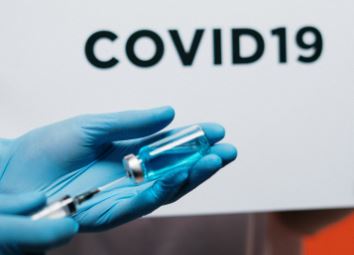
MI COVID Alert hits half a million downloads

Press Release FOR IMMEDIATE RELEASE: Dec. 17, 2020 CONTACT: Bob Wheaton, 517-241-2112, wheatonb@ MI COVID Alert hits nearly half a million downloads in first month LANSING, Mich. – A month after its statewide launch, the MI COVID Alert app has reached nearly 500,000 downloads. Today the Michigan Department of Health and Human Services (MDHHS) and Michigan Department of Technology, Management & Budget (DTMB) announced there have been 461,192 downloads of MI COVID Alert. The state also rolled out a second option for users to receive the PIN required to anonymously share a positive COVID-19 test result. “So much about fighting COVID is hard, but this is easy: Please download MI COVID Alert on your phone,” said Robert Gordon, director of MDHHS. “It protects your privacy, and it will help protect us all. If we hit even a million downloads by January 2021, we’ll be safer until a vaccine is available to the broader population.” Even when just 15% of a population used an exposure notification app like MI COVID Alert, researchers from Oxford University found a potential to reduce infections and deaths. Already, nearly 9% of Michigan residents ages 18 to 64 have downloaded MI COVID Alert. When a person tests positive for COVID-19, they are eligible to receive a randomly generated PIN. This PIN allows people to share test results anonymously in MI COVID Alert. After a positive test result is entered into the app, close contacts – people who have been within six feet for 15 minutes or more over a 24-hour period – will receive an anonymous push notification letting them know they may have been exposed to COVID-19 and the number of days since the possible exposure took place. No personally identifiable information is required or shared with other users. With the total number of COVID-19 cases and people exposed to the virus recently, some COVID-positive residents may not receive a call from their local health department right away. However, app users can now retrieve a PIN two more ways by:
MI COVID Alert uses randomly generated phone codes and low-energy Bluetooth technology to gauge proximity between phones with the app instead of using GPS. The use of this technology protects the privacy of all users and prevents tracking someone’s exact location. Michigan worked with Apple and Google to make MI COVID Alert compatible with similar apps in other states. The exposure notification feature included in recent iOS and Android operating system updates only works with a companion app like MI COVID Alert, which is available for iOS and Android phones by visiting Apple and Google app stores. Or for more information about the app, go to the MI COVID Alert webpage. The app works in conjunction with traditional contact tracing, mask wearing, hand washing and social distancing, but is not a replacement for these precautions or participation in contact tracing. People who are exposed to COVID-19 should get tested and consider quarantining for 14 days from the date of possible exposure. If a person is still symptom-free on day 10, they can end quarantine early. However, they should continue monitoring for symptoms for four additional days. Anyone who needs testing may visit the COVID-19 website to find a testing location near them. They may also contact the Michigan COVID-19 hotline to locate and schedule an appointment. Other states, including Virginia, Arizona, New York, Alabama and New Jersey, launched similar exposure notifications apps. Additional states have apps in development. |





